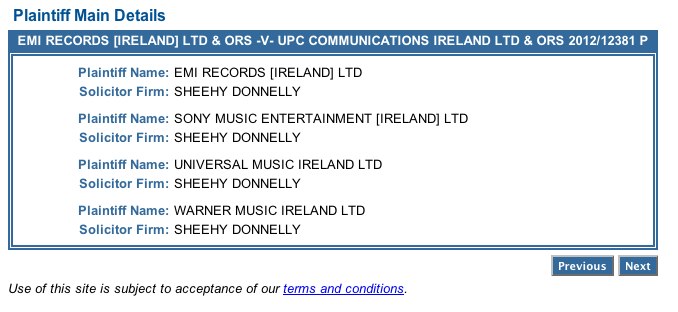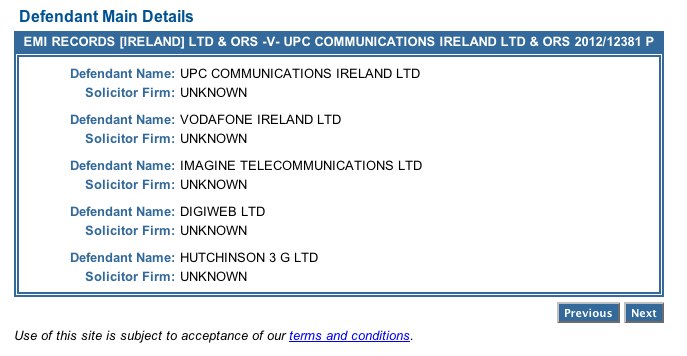The National Digital Research Centre (NDRC) is the successor to the now departed MediaLab Europe in Dublin’s Digital Hub.
Like all good corporate entities, it has a mission statement.
“NDRC’s mission is to create market capital by accelerating ideas to income in a sustainable, ongoing and enduring way.”
“Accelerating ideas to income” is what we might otherwise call helping to start a successful company.
The company is a joint venture between Irish Universities and is funded, almost entirely, by a grant from the Department of Communications, Energy and Natural Resources. It has been accepted by the Revenue Commissioners for favourable tax treatment as a charity.
Last year, I wrote about the peculiar assertions regarding the return on investment to date in the Annual Report produced for 2011 by the NDRC.
Previously on the NDRC…
Researching Return on Investment (ROI) at the National Digital Research Centre
National Digital Research Centre responds to my post on ROI
National Digital Research Centre: Making Investments or “Investments”?
There were two main questions at issue in those posts. Firstly, there was the cryptic claim made in the 2011 Annual Report that the NDRC had achieved “1.2x return on investment”. And secondly there was the mystery of the shareholdings taken in exchange for the public money invested in all the NDRC’s companies. They appeared not to be referred to at all in the financial records filed with the CRO.
The first question was answered in the 2nd post: Effectively, “1.2x return on investment” didn’t refer to any return to the NDRC on its investment at all.
But there remained the question of why there wasn’t any reference in the financials to the shareholdings the NDRC receive in return for their investments.
Ch-ch-ch-Changes
A few things happened after the publication of my third post exploring this issue. Firstly, the NDRC’s Auditors, Ernst & Young, resigned on the 21st December 2011. Secondly, a new Company Secretary was appointed in May 2012.
PriceWaterhouseCoopers became the new Auditors for the company. This year the NDRC Annual Report for 2012 broke with its predecessors by including financial data and Statements from the Directors and the Auditors.
For the first time, those financials included an valuation of the shares in the companies the NDRC have invested in over the previous 4 years. It explained that valuation as follows;
“Follow-on investment in the shares of companies to commercialise intellectual property generated by an entities research activities is recognised on the balance sheet at cost, less allowance for impairment losses.”
If, like me, you are borderline innumerate, that means they have assessed the shares in the 48 companies in their Portfolio (listed on page 45 of the 2012 Annual Report) as having no value at all.
Zero. Nothing. No value assigned to any of them. They appear nowhere as an asset on the balance sheet with any value at all.
Nothing out of Forty Eight.
Actually, out of Forty Seven. Because there is one company investment which is recorded as an asset. The Annual Report makes quite a big deal about this.
“[There is] one such an enterprise having matured for the first time to the point of being recognised as an asset on the company’s balance sheet. This latter development is a key developmental stage in the progressive maturing of the company’s investment and engagement activities to date.”
An asset! A hit! Send home the blindfolded monkeys! We don’t need their investment skills.
Wait.
What kind of asset are we talking about here?
“During the year, as part of a collaborative translational research investment, the company invested €60,000 in lingleOnline limited, a spinout created for the commercial exploitation of intellectual property developed.”
And what is this investment worth now?
“Investment in unlisted company €60,000”
OK. So the cash is still there. As we can see, these investment activities really are maturing progressively.
The Brewster’s Millions Investment Model
To be clear, the NDRC has spent 18.5 million euro of public money. It expects, by July of 2013 to have pushed that figure to €25 million. In return for its investments it has taken shares in 48 companies.
The financial statement says the NDRC’s share in one of those companies is currently worth exactly what was paid in. The rest aren’t worth anything at all.
It seems like a bonfire would have been a quicker and easier way to receive the same return on investment.
And yet.
There’s just one more thing.
Because, in a pull out box on page 5 of the 2012 Annual Report, there’s something surprising.
“€28.8 m Valuation of Portfolio Companies who secured Follow-On Investment”
If some or all of those 48 companies are collectively worth €28.8 million why aren’t the shares held in those companies listed as assets of NDRC? Not for the first time, I’m mystified.
The NDRC were allotted €25 million from the Department of Communication, Energy and Natural Resources to be drawn down over five years. From the Annual Report, it appears that, as they come to the end of their fifth year, they are eager to continue in existence.
“having proven the success of our model, NDRC is poised and ready to scale.”
When that model is based on spending scarce public money, it is reasonable to expect a financial return on the investment.
Citing the jobs created in the companies is not sufficient to justify the NDRC’s model, if that model is predicated on taking shareholdings as a method of ensuring a return to the taxpayer for their money.
The eponymous hero of Brewster’s Millions provided considerable employment until the money ran out. His task was to spend millions in a set time period and have absolutely no assets to show for it.
It was a good film. It would be a poor use of public funds.







